'I have no idea why I was so many film-makers' choice for Jinnah. I assume it is because I was born and bred in Mumbai and speak English.'
'There's also my name, people tend to believe that a Muslim character can best be played by a Muslim actor.'

Arif Zakaria, who plays Muhammad Ali Jinnah, the leader of the All-India Muslim League from 1913 and the first governor general of Pakistan, in Nikkhil Advani's series Freedom At Midnight, tells Rediff.com Senior Contributor Roshmila Bhattacharya& that he has always been apolitical.
"Politics interests and intrigues me, but as a bystander. A part of my family was and is in politics, so the curiosity is there," he says.
Arif, given your surprising physical resemblance to Jinnah and your brilliant performance in Freedom At Midnight, one wonders if Nikkhil Advani was the first film-maker to approach you to play him?
No, Mr (Shyam) Benegal was the first gentleman to offer me the role of Jinnah.
In fact, he approached me twice.
Once, was for a TV show he was doing, maybe Samvidhaan: The Making of the Constitution of India.
The second time it was for a long sequence featuring Jinnah in Mujib: The Making of a Nation, the biopic of Bangabandhu, Sheikh Mujibur Rahman.
There were offers for a few stray Web shows and films too.
I have no idea why I was so many film-makers' choice for Jinnah. I assume it is because I was born and bred in Mumbai and speak English.
There's also my name, people tend to believe that a Muslim character can best be played by a Muslim actor.
None of these offers materialised for whatever reasons.
I guess I was fated to play Jinnah in such a vast, expansive way in Freedom At Midnight.
Let's flashback to the audition...
Nikkhil, fortunately, did not put me through an elaborate audition. I remember he made me read a scene in his office.
It's the one in the first or second episode where Jawaharlal Nehru comes to Jinnah's house asking him to join the government.
Even though I was on the leaner side then, I had to lose some weight for the series because Jinnah was ailing and very frail then.
But I was pretty much there in the physicality and fortuitously, things fell in place.

What was the first day of the shoot like?
Well, we shot the scene which comes in episode seven when a young Gandhi comes to a Gujarat sabha and is welcomed by a young Jinnah.
It's a big scene where Jinnah introduces Gandhi, who starts speaking in Gujarati, and runs him down.
There's an awkward confrontational moment between the two when they were young.
It being the first day of shoot, the heart was pounding.
Things have to be right, look good and the tone set, I know it takes time even if you have rehearsed ad nauseam in an air conditioned office or in the privacy of your home several times.
This was on camera!
Also, there was the smoking. I don't smoke so it took me a while to get used to tobacco.
There were mini challenges, but everything worked out well in the end.
In the post release interviews, many of the actors admit playing a particular character gave them an understanding of the person. What's your understanding of Jinnah's ideology and has it changed after living him on screen?
Not really because once a shoot is over, I don't dwell too much on the psyche of the character.
I perform a scene from the way it is written without getting too deep into his personal ideology.
I'm already looking to my next role, there's no great resonance that I carry with me today.
During those seven-eight months of shooting, I would perform in front of the camera, but there's nothing beyond that.

The reason I'm asking you this is that politics is an integral part of your family. Your uncle Rafiq Zakaria was a veteran Congress politician as was your father Ahmed Zakaria. Your brother Asif Zakaria is the Congress candidate from the Bandra West constituency of Mumbai on a Congress ticket. What is your take on contemporary politics and have you ever been drawn to it?
Politics interests and intrigues me, but as a bystander.
A part of my family was and is in politics, so the curiosity is there.
One could have preferences in terms of the choice of candidates, but that is one's personal journey.
It's like asking what you eat and don't eat, not something that needs to be in the public domain.
Personally, I've been apolitical all my life.
Is India as secular as Gandhi wanted it to be?
I choose to believe it is.
There is a lot of noise because of social media.
We tend to get a lot of information about a lot of conflict which has been there since the past 100 years or so.
We are only becoming aware of it now in real time because of live news and social media, constantly scrolling and looking.



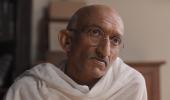
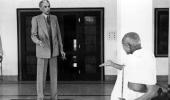



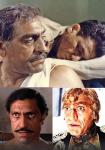
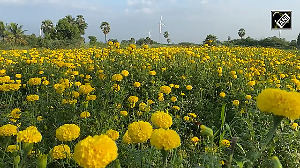

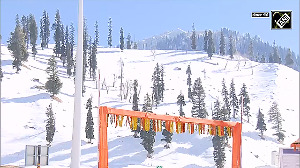
 © 2025
© 2025